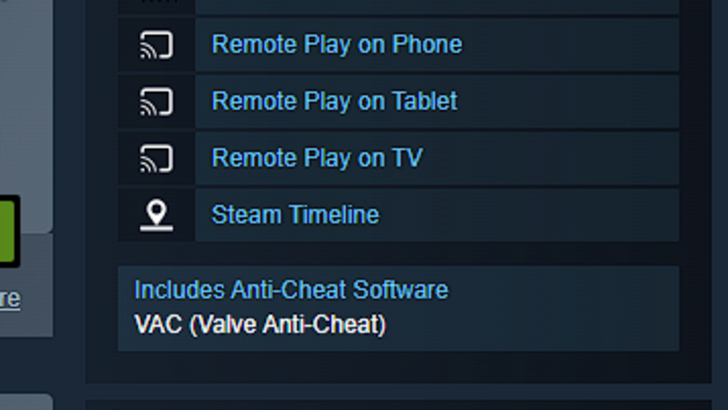Steam's New Anti-Cheat Transparency Feature: A Step Towards Better Communication?
 Steam has implemented a new requirement for developers: disclosing whether their games utilize kernel-mode anti-cheat systems. This move aims to enhance transparency and address player concerns regarding the potentially intrusive nature of such technology. Let's delve into the details.
Steam has implemented a new requirement for developers: disclosing whether their games utilize kernel-mode anti-cheat systems. This move aims to enhance transparency and address player concerns regarding the potentially intrusive nature of such technology. Let's delve into the details.
Valve's New Anti-Cheat Disclosure Tool
 Via a recent Steam News Hub announcement, Valve introduced a new feature within the Steamworks API ("Edit Store Page"). This allows developers to specify their game's use of anti-cheat software. While disclosure for client-side or server-side (non-kernel) anti-cheat remains optional, the mandatory declaration of kernel-mode anti-cheat is a significant change, directly responding to player anxieties about privacy and system performance impacts.
Via a recent Steam News Hub announcement, Valve introduced a new feature within the Steamworks API ("Edit Store Page"). This allows developers to specify their game's use of anti-cheat software. While disclosure for client-side or server-side (non-kernel) anti-cheat remains optional, the mandatory declaration of kernel-mode anti-cheat is a significant change, directly responding to player anxieties about privacy and system performance impacts.
The Kernel-Mode Anti-Cheat Controversy
 Kernel-mode anti-cheat operates at a low system level, directly examining processes on a player's machine. This differs from traditional methods that analyze in-game activity. This deep system access has fueled concerns about potential security risks, privacy violations, and performance degradation.
Kernel-mode anti-cheat operates at a low system level, directly examining processes on a player's machine. This differs from traditional methods that analyze in-game activity. This deep system access has fueled concerns about potential security risks, privacy violations, and performance degradation.
Valve's response reflects feedback from both developers seeking clearer communication channels and players demanding greater transparency about anti-cheat implementations and associated software installations. Their official statement highlights this dual need for improved information flow.

Mixed Community Reception
 Launched on October 31, 2024, at 3:09 a.m. CST, the update is live. Counter-Strike 2's Steam page now showcases the use of Valve Anti-Cheat (VAC), demonstrating the change in action.
Launched on October 31, 2024, at 3:09 a.m. CST, the update is live. Counter-Strike 2's Steam page now showcases the use of Valve Anti-Cheat (VAC), demonstrating the change in action.
While many applaud Valve's "pro-consumer" approach, some criticism remains. Minor issues like grammatical inconsistencies in the display and the phrasing used to describe older games needing updates have been noted.
 Further questions arose regarding language translation handling and the precise definition of "client-side kernel-mode" anti-cheat, particularly concerning solutions like PunkBuster. The underlying concerns about the invasiveness of kernel-mode anti-cheat persist.
Further questions arose regarding language translation handling and the precise definition of "client-side kernel-mode" anti-cheat, particularly concerning solutions like PunkBuster. The underlying concerns about the invasiveness of kernel-mode anti-cheat persist.
Despite initial mixed reactions, Valve's commitment to consumer protection is evident, as shown by their transparency regarding recent California legislation aimed at combating deceptive advertising of digital goods. Whether this new transparency fully alleviates community concerns about kernel-mode anti-cheat remains to be seen.














